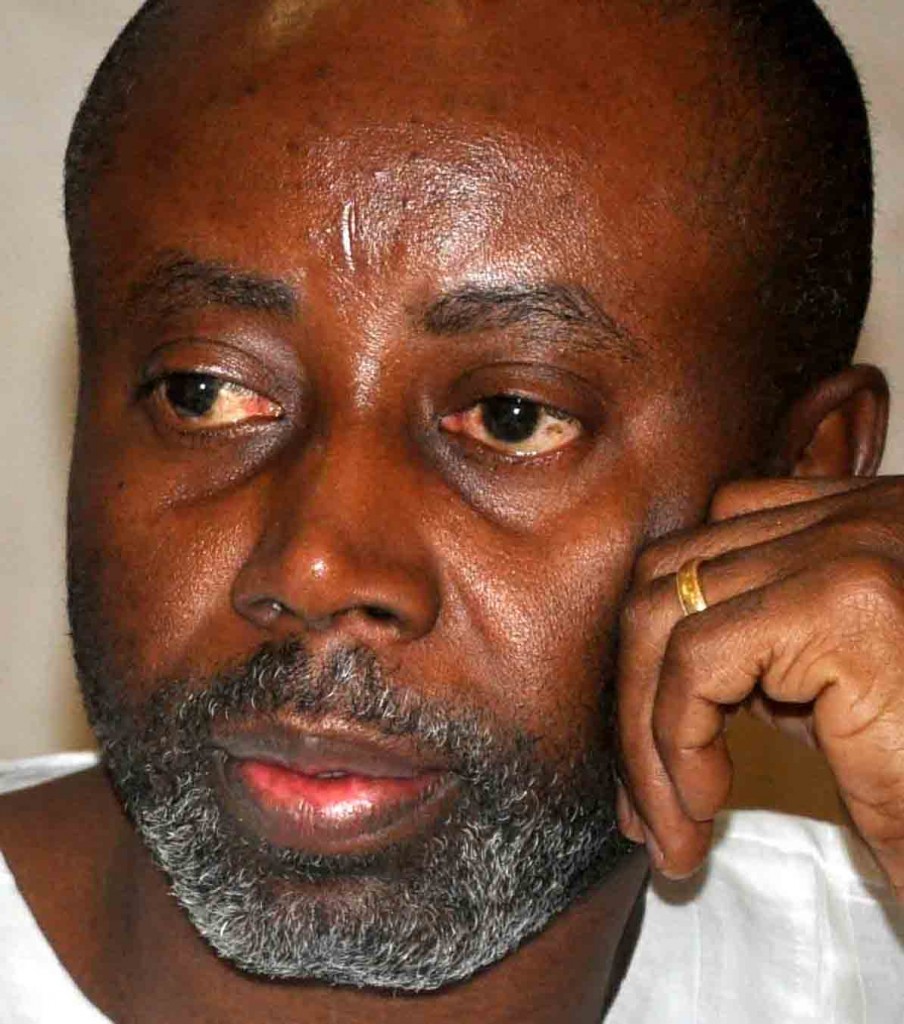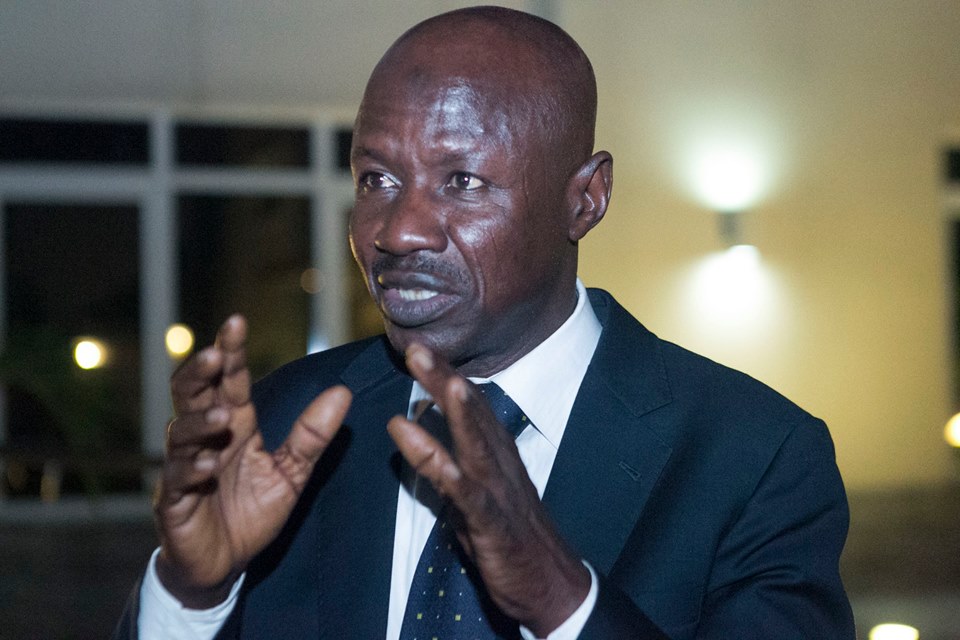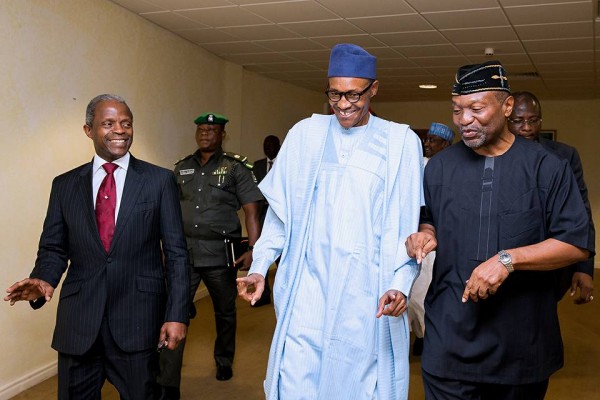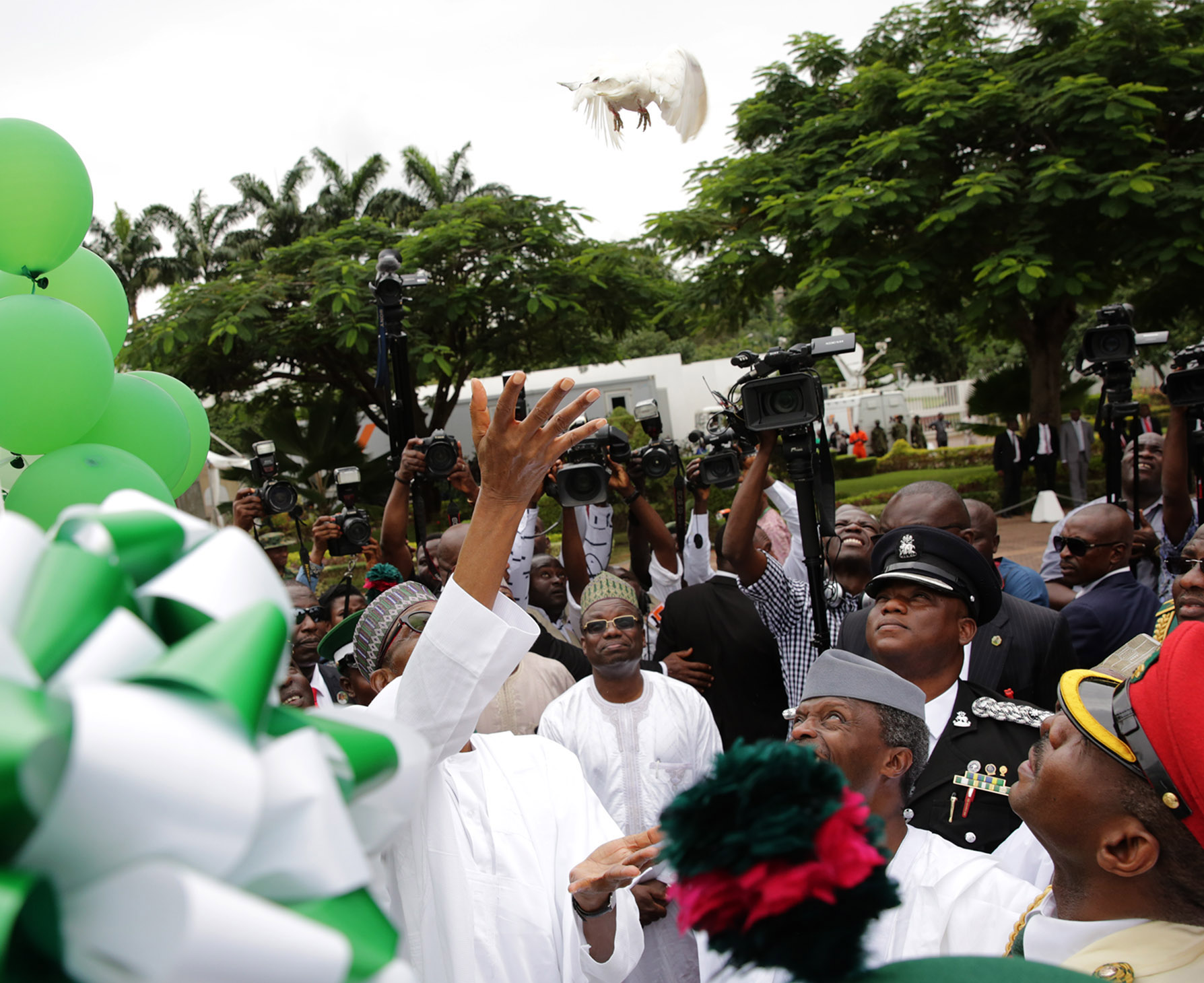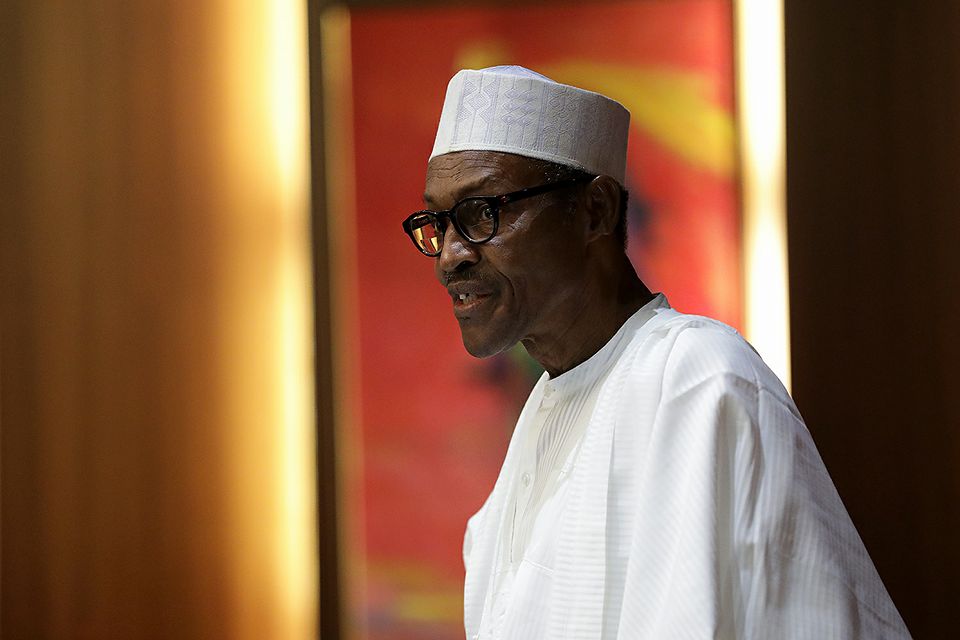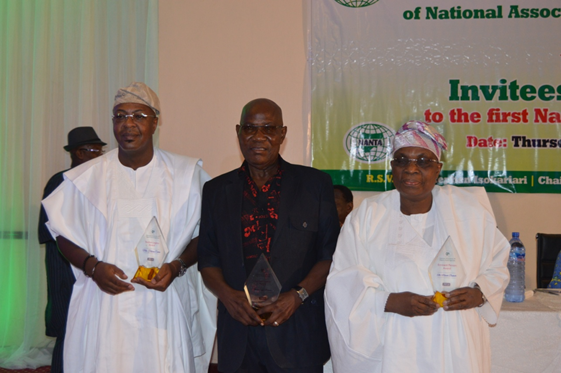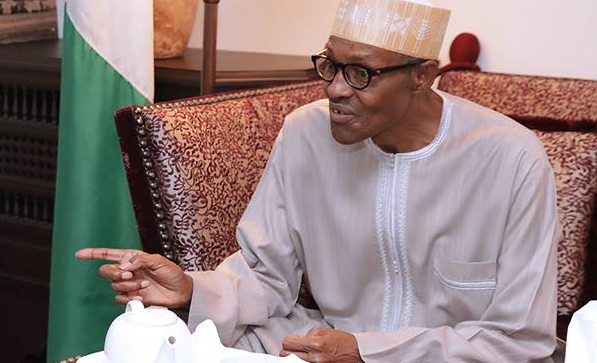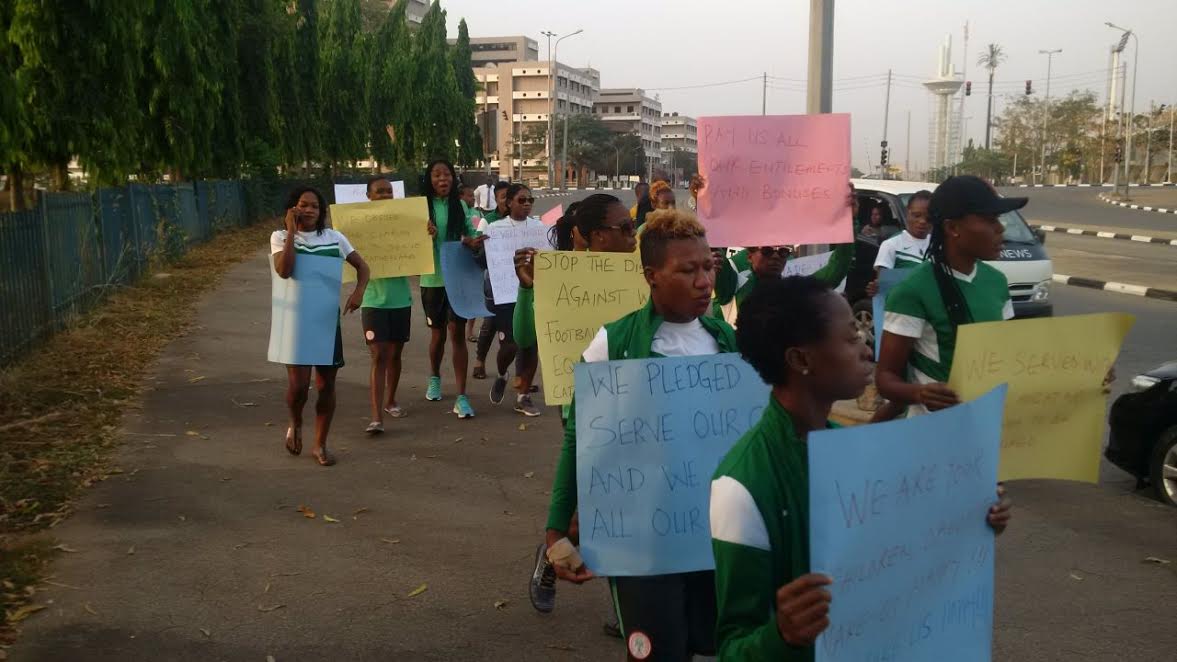There are very few moments in a nation’s history that can equate the infamy that took place at the Nigerian Senate on Thursday, December 15, 2016. Of course, this is Nigeria, where infamous acts by those who have purloined our country are an everyday occurrence.
Two days ago, after months of prevarication the Nigerian senate, one half of the National Assembly that was described as a den of thieves and “unarmed robbers” by ex-president, Olusegun Obasanjo, finally summoned the shameless audacity to “reject” the nomination of Ibrahim Mustapha Magu as the chairman of Nigeria’s foremost anti-corruption agency, the Economic and Financial Crimes Commission (EFCC). Anyway who didn’t expect that outcome must be from Mars.
In a sentence, that despicable act was a coup against the long-suffering people of Nigeria; a clear attempt by a self-absorbed and rapacious elite to continue to reap the fruit of corruption. The elite capture of the Nigerian state has a long history and manifests in various guises.
Listening to a quivering Aliyu Abdullahi, the spokesperson of the senate, read the terse handwritten declaration, while the senate was still in session, “rejecting” Magu’s nomination, I was reminded of that infamous act twenty three years ago when Nduka Irabor, the press secretary to the then military Vice-President, Augustus Aikhomu, read a short handwritten speech annulling the result of the June 12, 2016, presidential election, before the electoral umpire could announce the results. We shouldn’t forget that that contemptible and criminal usurpation of the will of Nigerians was supervised by the “evil genius”, Ibrahim Babangida, and his cohorts, including David Mark, a retired general, who would resurface in 2007 as president of this same senate.
It would be too clichéd to say what is going on is corruption fighting back. That would amount to honouring our senators, many of them former executive scoundrels who have found a safe haven in the senate. But we can’t really blame the senate. It did what it had to do. It needed an alibi to reject Magu and it found it in the “damning” security report submitted by the Department of State Services (DSS). How a bunch of wastrels, acting as distinguished senators, can hold a nation to ransom beggars belief. A few years ago, one of their own and a former governor of Kano State, Rabiu Kwankwaso, described the National Assembly as the greatest problem of Nigeria. After reviewing what transpired in the senate on Thursday, it is difficult to fault Kwankwaso.
Advertisement
Was Thursday’s decision a unanimous one? How many Senators, if any, opposed the vote? If there were any, they should stand up and be counted because when the history of the senate, and indeed that of the country is written, Thursday’s action will go down as one of the greatest political heists since the military-inspired civilian rule came to being in 1999. Anyone who wants to really appreciate the Magu confirmation imbroglio must look no further than the procedural inconsistency that trailed it. Clearly, no hearing of any form took place in the senate on December 15, 2016. Assumedly, the so-called security report was submitted to the senate so that senators could consider it in making “informed judgement” on whether to confirm Mr Magu or not. That didn’t happen.
The anti-Magu hysteria that has gripped a section of the media and civil society hoodwinked by our duplicitous senate and its collaborators is appalling. It is necessary, at this juncture, therefore, to do a quick review of the trajectory of this orchestrated plot. Magu’s confirmation letter was read in the senate on July 14, 2016. It took our do-nothing senate exactly five months, on the day it was going on recess for the year, to get around to “screening” him.
The letter, signed by the Vice President, Prof Yemi Osinbajo, read in part, “…I hereby draw your Excellency’s attention to the vacancy that existed in the EFCC. Having carefully considered EMINENTLY SUITABLE QUALIFIED NIGERIANS (emphasis mine) for the vacant position, I am pleased to inform you of the appointment of the following and to propose them for confirmation of the Senate as provided by the EFCC Act. 1. Magu Ibrahim Mustapha, ACP – Chairman; 2. Nasule Moses – Member; 3. Lawan Maman – Member; 4. Garandaji Imam Naji – Member; 5. Adeleke Abebayo Rafiu – Member. The curriculum vitae of the appointee are attached for the information of the distinguished senators. I hope the screening will as usual be carried out expeditiously by the distinguished senate.”
Advertisement
Many other nominees whose letters of nomination were sent to the senate after Magu’s were expeditiously screened. Then late Wednesday, December 7, 2016, Magu’s name appeared on the first page of the Order Paper, the senate’s daily agenda, for Thursday, 8th December, 2016. It read: “Confirmation of nomination: That the Senate do consider the request of Mr. President, C-in-C, for the confirmation of the nomination of Ibrahim Magu as Chairman of the Economic and Financial Crimes Commission (EFCC) in accordance with Section 2(3) of the Economic and Financial Crimes Commission (EFCC).” The same day, the deputy Senate President, Ike Ekweremadu, announced at plenary that the confirmation hearing would hold the next day after five months of delay.
By the morning of Thursday, December 8, 2016, a new Order Paper, without any mention of Magu’s confirmation, appeared. The news from the senate was that because of the importance of the confirmation, it wanted to create room for more senators to be involved in the process. Fast forward to Thursday, December 15, 2016. Magu’s name appeared again on the Order Paper and he was expected to be at the senate to be grilled by distinguished senators on how he has run the EFCC since his appointment on November 9, 2015, as acting chairman. It was also a veritable opportunity to raise any concerns the senators might have about any allegations against him. Well, as it turned out, it was all a ruse. Once it resumed, the senate went into an executive session – which meant the public was not privy to its deliberations – and cooked up a reason to reject Magu’s nomination.
The senate just “resolved” that since there was a security report, it could not go ahead with the confirmation hearing. Of course, it is important to find out the role of the senate committee on anti-corruption in this mess? Did it investigate the DSS report? Did it make a presentation to the senate on the issue? Did the senate only receive the DSS report or there were other petitions from the public against Magu? If the senate felt so strongly about the security report, why were senators not availed of the content before Thursday? If the senate didn’t do its own due diligence, why was the acting chairman of EFCC made to appear before the senate without being allowed to state his side of the story?
As soon as the senate formally “rejected” Magu’s nomination, it released the “damning” security report – a report that was in the public domain for many months – and its spin doctors and sympathizers went on overdrive and it lapdogs started foaming in the mouth. Magu was accused of various crimes, including living in a N40million mansion allegedly paid for by a shady character, Umar Mohammed, a retired air commodore. I will leave Magu to speak for himself. But if this allegation is true, it is not something the senate and the DSS should treat with such levity.
Advertisement
Of course, the Presidency bears some culpability in this national show of shame. All of Magu’s purported crimes were committed before his name was sent to the senate. Is it possible then that the DSS did not do a security check on him before the Presidency sent his name to the senate? Did the DSS invite Magu to “defend” himself over their finding? Could it be, to borrow a local parlance, a case of the insect destroying the leaf lives inside the leaf? Undoubtedly, there are those within the Presidency who are vehemently opposed to Magu and they found willing collaborators in the senate.
Clearly, there is a serious lack of coherence and control in the exercise of power in the Presidency. Why would a nominee of Mr. President before the senate be undermined by a report by the DSS? Can the president send the name of a nominee to the senate without DSS clearance? There is serious doubt about APC and Buhari’s change mantra but nowhere is this apprehension more critical than on the issue of the war against corruption. This will be a true test for President Buhari’s anti-corruption credentials. There are two options open to him: re-submit Magu’s name for confirmation or allow him stay as acting chairman of EFCC.
Sure, Magu is not the only Nigerian who can lead the EFCC, but it will be hard to find someone – within the limitations placed by the EFCC Establishment Act – who has the experience, and above all, courage and determination, to confront some of the most despicable and vicious characters who have occupied public office in Nigeria.
Of course, it is only in Nigeria that criminals who should ordinarily be in jail for their egregious crimes against the country are the ones who define moral codes and sit in judgement on how to punish crime.
Advertisement
Views expressed by contributors are strictly personal and not of TheCable.
Add a comment
